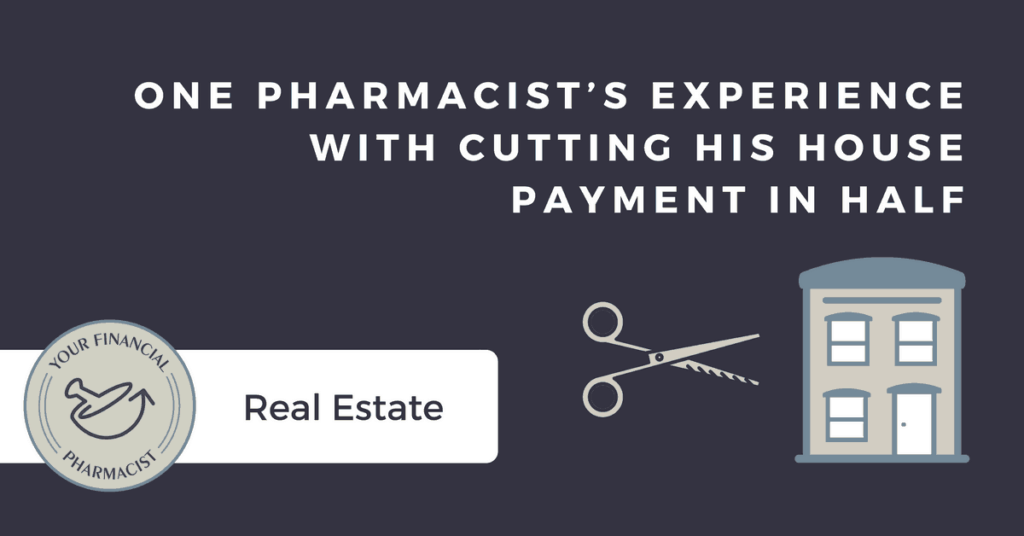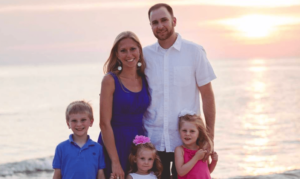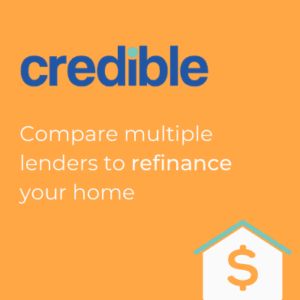This post was written by Justin Cole, PharmD, BCPS. He is a 2006 graduate of Ohio Northern University. Dr. Cole recently accepted an appointment as Vice Chair and Assistant Professor of Pharmacy Practice at the Cedarville University School of Pharmacy. Over the previous 10 years, he served in various roles at Nationwide Children’s Hospital in Columbus, Ohio, where he continues to practice. Professionally, he is passionate about pediatrics, pharmacy leadership development, and medical care of underserved populations. You can follow him on Twitter for content related to these passions. He and his wife, Michelle, have three children and enjoy music, hiking, biking, and just about anything done outdoors. If you have any questions about this article, feel free to contact Justin directly at [email protected].
For most of us, a home is the largest purchase we will make in a lifetime. As a result, our homes are a symbol of status and wealth. We are slaves to comparison, defining ourselves by the number of square feet we occupy or the status of our neighborhood.
Pharmacists may also feel pressure to buy a “bigger and better” home similar to or better than the ones owned by our parents. These factors can lead to taking on mortgages that hinder us from achieving other financial goals. We give ourselves little wiggle room for changes in our financial situation and fail to account for all the costs of home ownership. Mortgage delinquency rates, even though improved today, remind us of this. Five percent of homeowners in the US are at least 30 days behind on their mortgage payment, and more than two percent are at least 90 days late (Ref: Forbes, 2017).
I felt many of these home-buying pressures shortly after graduating from pharmacy school. After having our apartment broken into, my wife and I decided to leave renting behind to buy our first home in a nice, safe neighborhood. We desired to have children in the future, so we looked for homes that we felt would be ideal for a family. During our first showing, we walked into the home and quickly felt it was our “forever home.” We ended up purchasing the beautiful four-bedroom home in a developing area. We knew it was a stretch for us to afford at the time, but we could not imagine passing up the opportunity.
To make it work, we ended up putting 10% down at closing and chose to take a second smaller mortgage at a higher interest rate for the additional 10% of the down payment (which I would never recommend doing). We paid off this second mortgage within a year by trimming costs in other parts of our budget. Over the next few years, we were able to refinance our home and were on track to pay off our mortgage years early. We felt incredibly blessed with our house and our three children that made it a home. We had hosted family gatherings, hosted a small group for our church, developed great relationships with neighbors, and made many fond memories in our home. It seemed that despite some of our financial decisions, things were working out well.
Credible Advertising Disclosure
NMLS ID: 1681276
320 Blackwell Street
Suite 200
Durham, NC 27701
After 10 years in hospital practice as a clinical pharmacist and coordinator, I accepted an academic appointment at a school of pharmacy. With this career change, we decided to relocate and were suddenly in the housing market again. During our search for a new home, we initially went into the process thinking of making a lateral move into a similar-sized home. After all, we were comfortable in our previous home and enjoyed the space it provided. We put offers on two similar-sized homes, but neither worked out. Because homes were selling quickly at the time, we had to rethink our strategy. My wife and I decided to consider homes that were smaller than the one we previously lived in.
In the end, we moved to a wonderful home that was less than half the size and cost of our previous home.
I did not fully realize the impact that home ownership had on our overall financial picture until our move. Through the process, we have learned a lot about ourselves and experienced many unexpected freedoms through downsizing.
Freedom to pay down debt. We were already on a path toward financial freedom, but much of my income was going toward our mortgage payment each month. Moving to a smaller home allowed us to pay off all of our non-mortgage debt including my student loans and an auto loan for a used minivan. Without the move, it would have taken us many more years to achieve debt freedom despite our best planning!
Freedom to save, spend, and give. We desire to be good stewards of all that we are given. Moving to a smaller home allowed us to bolster our emergency fund and gave us the flexibility to save more for retirement. Shortly after moving and paying off our non-mortgage debt, we also decided to take a family vacation that previously seemed like a distant dream. Most importantly, we were in a position to be more generous. While we had always budgeted to give to our church, mission work, and a handful of non-profit organizations we supported, we found ourselves with the ability to meet other needs around us.
Freedom from anxiety. It still pains me to admit this, but I did not realize how much time and energy I spent worrying about our financial situation until after the move. While we weren’t living paycheck to paycheck and had an emergency fund, I still spent a lot of time dissecting our finances, much of which went toward our mortgage payment. After the move, it was as if a burden had been lifted off our shoulders. I found myself thinking a lot less about our financial situation, and my sleep even improved as a result. I had never thought of myself as an anxious person but realized that concerning finances I was. Sometimes it takes a change in circumstances to reveal faults in our own mindset.
Freedom from the desire for more. No one likes empty rooms. The bigger the house, the more you have to buy to fill it. In moving to a smaller home, we began to reevaluate what we really need. We have sold some items, donated others to second-hand stores, given items away, and even trashed things that we had been holding onto for too long. For purchases, we now consider space carefully and evaluate the real need for something shiny and new. In essence, we have learned to live with contentment. We are now more debt-averse than ever before. Our spending habits have changed; we now spend less on possessions and more on experiences that our family can turn into memories.
While living below your means makes complete sense, it took an unexpected change to help us truly realize its blessings. We can confidently assert that freedom comes from making financial independence a higher priority than status symbols. While this may not be the last home we buy, we are content with all of the unexpected blessings that we have through it, and are prepared to make solid financial decisions because of the lessons we have learned.
So what is the way forward for someone who desires to achieve financial freedom and purchase a home? How do you determine what home you need rather than the home you want? Can you have both? Look for more posts this summer related to how home buying fits into your overall financial plan!
Join the YFP Community!
Recent Posts
[pt_view id=”f651872qnv”]











